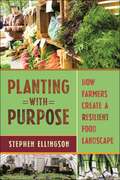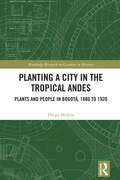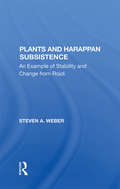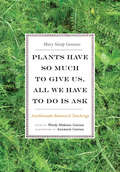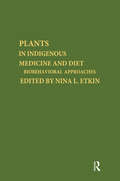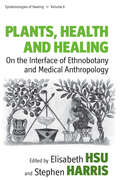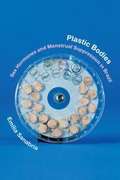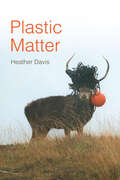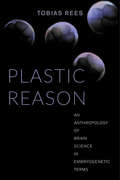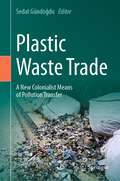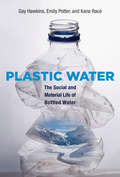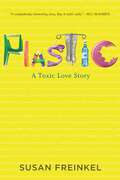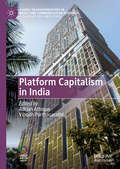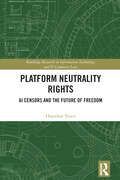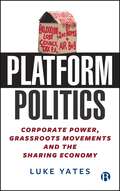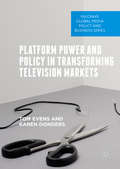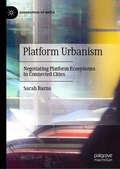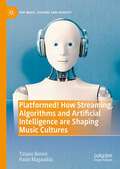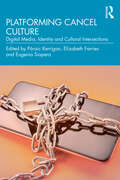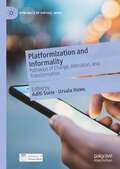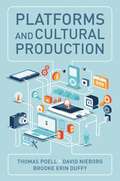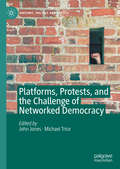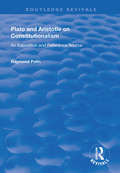- Table View
- List View
Planting With Purpose: How Farmers Create a Resilient Food Landscape
by Stephen EllingsonExamines local food movement activism in a period of increasing climate chaos and neoliberal crisis, economic inequalities and political divisionsIn the face of numerous challenges, small-scale farming for local markets requires enormous courage and optimism. The decision to become a farmer often arises from a profound desire to uphold certain values and beliefs, driven by the moral and emotional motivations to contribute to a greater good.Central New York’s local food market draws a unique cohort of individuals who see farming as more than just a livelihood; it is a way to define a good life and contribute to the well-being of the society they cherish. Their moral order revolves around shared beliefs in sustainability and stewardship of the land, emphasizing health and risk management, cooperation over competition, and a deep sense of justice. For these farmers, relationships and family ties are foundational to their work, creating a strong sense of community within the local food system.This book delves into the captivating world of local food markets in a “Rust Belt” region of the state, where 51 individuals representing 45 different farms, restaurants, agricultural non-profits, and local food retailers share their inspiring stories through conversations and interviews. Author Stephen Ellingson explores the intricate web of moral commitments, self-understandings, and emotional experiences that drive and sustain small-scale farming for the local food market. By amplifying the voices of these unsung heroes, it gives recognition to the crucial role they play in society and offers important insights into the values that underpin their contributions to the local food system.
Planting a City in the Tropical Andes: Plants and People in Bogotá, 1880 to 1920 (Routledge Research on Gardens in History)
by Diego MolinaThis book reveals how the 19th Century modernisation of Bogotá led to a transformation in the social role of plants – showing how this city located in the high altitudes of the tropical Andes turned into a ‘floristic island’ formed by native, introduce, wild and cultivated plants.Urbanisation is one of the main forces behind biodiversity loss. Paradoxically, the expansion of cities has made urban environment spaces with a greater numbers of plant species compared to their surrounding areas. Planting a City in the Tropical Andes takes a multidisciplinary approach to shed light on the cultural and ecological mechanisms that have transformed modern cities into what can be described as ‘floristic islands’. By drawing upon a wide array of historical sources, this book explains how the 19th-century modernization of Bogotá (Colombia), led to the replacement of traditional botanical practices with technical knowledge, which in turn endowed the city with a unique floristic inventory. Through a unique botanical perspective on Latin American urban history, this book uncovers how capitalist dynamics in Bogotá transformed plants into providers of clean air and water and their use in the urban landscape contributed to the cultivation of disciplined citizenry. Placing plants at the forefront of its narrative, the book offers an original contribution to the underexplored history of horticulture in tropical Latin America. It serves as a compelling example of how the creative and conflicting forces of the Anthropocene have forged new environments and previously unseen relationships between people and plants.This volume will be of great use to scholars and students interested in social history, urban environmental histories and cultural history.
Plants And Harappan Subsistence: An Example Of Stability And Change From Rojdi
by Steven A. WeberThis book aims to interpret the archeobotanical remains at the site of Rojdi, in northwest India, with reference to diet and environment and within a socio-economic framework. It discusses artifactual material which associates it with the 'Harappan Cultural Tradition'.
Plants Have So Much to Give Us, All We Have to Do Is Ask: Anishinaabe Botanical Teachings
by Mary Siisip GeniuszMary Siisip Geniusz has spent more than thirty years working with, living with, and using the Anishinaabe teachings, recipes, and botanical information she shares in Plants Have So Much to Give Us, All We Have to Do Is Ask. Geniusz gained much of the knowledge she writes about from her years as an oshkaabewis, a traditionally trained apprentice, and as friend to the late Keewaydinoquay, an Anishinaabe medicine woman from the Leelanau Peninsula in Michigan and a scholar, teacher, and practitioner in the field of native ethnobotany. Keewaydinoquay published little in her lifetime, yet Geniusz has carried on her legacy by making this body of knowledge accessible to a broader audience. Geniusz teaches the ways she was taught—through stories. Sharing the traditional stories she learned at Keewaydinoquay&’s side as well as stories from other American Indian traditions and her own experiences, Geniusz brings the plants to life with narratives that explain their uses, meaning, and history. Stories such as &“Naanabozho and the Squeaky-Voice Plant&” place the plants in cultural context and illustrate the belief in plants as cognizant beings. Covering a wide range of plants, from conifers to cattails to medicinal uses of yarrow, mullein, and dandelion, she explains how we can work with those beings to create food, simple medicines, and practical botanical tools. Plants Have So Much to Give Us, All We Have to Do Is Ask makes this botanical information useful to native and nonnative healers and educators and places it in the context of the Anishinaabe culture that developed the knowledge and practice.
Plants and Indigenous Medicine and Diet: Biobehavioral Approaches
by Nina L. EtkinFirst Published in 1986. Routledge is an imprint of Taylor & Francis, an informa company. Humans have long been acute observers of their biological surroundings and have been involved in dynamic relationships with ambient flora and fauna since the development of the earliest medical systems and food-getting technologies. Human-plant interactions can, then, be viewed as one expression of a population’s encounter with their environment and have been the subject of considerable interest in various disciplines which seek to understand how the use of plants affects patterns of health and disease. The aim of this volume is to promote a bio-behavioral focus for indigenous plant research.
Plants, Health And Healing
by Stephen Harris Elisabeth HsuPlants have cultural histories, as their applications change over time and with place. Some plant species have affected human cultures in profound ways, such as the stimulants tea and coffee from the Old World, or coca and quinine from South America. Even though medicinal plants have always attracted considerable attention, there is surprisingly little research on the interface of ethnobotany and medical anthropology. This volume, which brings together (ethno-)botanists, medical anthropologists and a clinician, makes an important contribution towards filling this gap. It emphasises that plant knowledge arises situationally as an intrinsic part of social relationships, that herbs need to be enticed if not seduced by the healers who work with them, that herbal remedies are cultural artefacts, and that bioprospecting and medicinal plant discovery can be viewed as the epitome of a long history of borrowing, stealing and exchanging plants.
Plastic Bodies: Sex Hormones and Menstrual Suppression in Brazil
by Emilia SanabriaIn Plastic Bodies Emilia Sanabria examines how sex hormones are enrolled to create, mold, and discipline social relations and subjectivities. She shows how hormones have become central to contemporary understandings of the body, class, gender, sex, personhood, modernity, and Brazilian national identity. Through interviews with women and doctors; observations in clinics, research centers and pharmacies; and analyses of contraceptive marketing, Sanabria traces the genealogy of menstrual suppression, from its use in population control strategies in the global South to its remarketing as a practice of pharmaceutical self-enhancement couched in neoliberal notions of choice. She links the widespread practice of menstrual suppression and other related elective medical interventions to Bahian views of the body as a malleable object that requires constant work. Given this bodily plasticity, and its potentially limitless character, the book considers ways to assess the values attributed to bodily interventions. Plastic Bodies will be of interest to all those working in medical anthropology, gender studies, and sexual and reproductive health.
Plastic Matter (Elements)
by Heather DavisPlastic is ubiquitous. It is in the Arctic, in the depths of the Mariana Trench, and in the high mountaintops of the Pyrenees. It is in the air we breathe and the water we drink. Nanoplastics penetrate our cell walls. Plastic is not just any material—it is emblematic of life in the twentieth and twenty-first centuries. In Plastic Matter Heather Davis traces plastic’s relations to geology, media, biology, and race to show how matter itself has come to be understood as pliable, disposable, and consumable. The invention and widespread use of plastic, Davis contends, reveals the dominance of the Western orientation to matter and its assumption that matter exists to be endlessly manipulated and controlled by humans. Plastic’s materiality and pliability reinforces these expectations of what matter should be and do. Davis charts these relations to matter by mapping the queer multispecies relationships between humans and plastic-eating bacteria and analyzing photography that documents the racialized environmental violence of plastic production. In so doing, Davis provokes readers to reexamine their relationships to matter and life in light of plastic’s saturation.
Plastic Pasts: Sited Memory in Paris, Algiers and Marseille
by Christopher LefflerThis book uses plasticity as a metaphor for understanding how the past endures and evolves within the landscape, and the ways in which remembering shapes the sites we occupy and use. The plastic site is characterised both by its resilience, its form never entirely altered from an earlier mould, and by its malleability, which ensures that whatever persists is inevitably transformed. Embodied in its present configuration are the many moments that have produced it over time, and these are continually supplemented and modified. Surveying examples from Paris, Algiers and Marseille, and media as diverse as literature, film, photography, blogs and video games, Plastic Pasts interrogates how different communities and cultural producers have grappled with the present past in space as an enduring and dynamic memory. It argues that understanding sited memory as plastic entails recognising a multiplicity of immutable pasts that exist in a permanent state of ongoing evolution.
Plastic Reason: An Anthropology of Brain Science in Embryogenetic Terms
by Tobias ReesThroughout the twentieth century, neuronal researchers knew the adult human brain to be a thoroughly fixed and immutable cellular structure, devoid of any developmental potential. Plastic Reason is a study of the efforts of a few Parisian neurobiologists to overturn this rigid conception of the central nervous system by showing that basic embryogenetic processes--most spectacularly the emergence of new cellular tissue in the form of new neurons, axons, dendrites, and synapses--continue in the mature brain. Furthermore, these researchers sought to demonstrate that the new tissues are still unspecific and hence literally plastic, and that this cellular plasticity is constitutive of the possibility of the human. Plastic Reason, grounded in years of fieldwork and historical research, is an anthropologist's account of what has arguably been one of the most sweeping events in the history of brain research--the highly contested effort to consider the adult brain in embryogenetic terms. A careful analysis of the disproving of an established truth, it reveals the turmoil that such a disruption brings about and the emergence of new possibilities of thinking and knowing.
Plastic Waste Trade: A New Colonialist Means of Pollution Transfer
by Sedat GündoğduThis contributed volume takes a holistic view of the international waste trade and in doing so argues that the transfer of plastic waste from mainly Global North to primarily Global South countries constitutes a form of 21st Century colonialism. The book first describes the history of the plastic waste trade, from toxic disasters in the 1970s and 1980s through the Basel Convention on the Control of Transboundary Movements of Hazardous Wastes and Their Disposal in 1989 through China’s 2018 implementation of a “National Sword” policy that effectively banned importation of plastic waste. From there, the authors explore both the legal trade in plastic waste and the underground illegal trade in waste, arguing that both lead to devastating impacts on ecosystems, workers, and communities in receiving countries and highlighting how countries that receive waste are often less equipped to process it than the countries that export waste. The last section of the book presents cases from countrieson the receiving end of the plastic waste trade, highlighting inherent problems from sociological and environmental justice perspectives.
Plastic Water: The Social and Material Life of Bottled Water (The\mit Press Ser.)
by Kane Race Emily Potter Gay HawkinsHow and why branded bottles of water have insinuated themselves into our daily lives, and what the implications are for safe urban water supplies.How did branded bottles of water insinuate themselves into our daily lives? Why did water become an economic good—no longer a common resource but a commercial product, in industry parlance a “fast moving consumer good,” or FMCG? Plastic Water examines the processes behind this transformation. It goes beyond the usual political and environmental critiques of bottled water to investigate its multiplicity, examining a bottle of water's simultaneous existence as, among other things, a product, personal health resource, object of boycotts, and part of accumulating waste matter. Throughout, the book focuses on the ontological dimensions of drinking bottled water—the ways in which this habit enacts new relations and meanings that may interfere with other drinking water practices.The book considers the assemblage and emergence of a mass market for water, from the invention of the polyethylene terephthalate (PET) bottle in 1973 to the development of “hydration science” that accompanied the rise of jogging in the United States. It looks at what bottles do in the world, tracing drinking and disposal practices in three Asian cities with unreliable access to safe water: Bangkok, Chennai, and Hanoi. And it considers the possibility of ethical drinking, examining campaigns to “say no” to the bottle and promote the consumption of tap water in Canada, the United States, and Australia.
Plastic: A Toxic Love Story
by Susan FreinkelPlastic built the modern world. Where would we be without bike helmets, baggies, toothbrushes, and pacemakers? But a century into our love affair with plastic, we’re starting to realize it’s not such a healthy relationship. Plastics draw on dwindling fossil fuels, leach harmful chemicals, litter landscapes, and destroy marine life. As journalist Susan Freinkel points out in this engaging and eye-opening book, we’re nearing a crisis point. We’ve produced as much plastic in the past decade as we did in the entire twentieth century. We’re drowning in the stuff, and we need to start making some hard choices. Freinkel gives us the tools we need with a blend of lively anecdotes and analysis. She combs through scientific studies and economic data, reporting from China and across the United States to assess the real impact of plastic on our lives. She tells her story through eight familiar plastic objects: comb, chair, Frisbee, IV bag, disposable lighter, grocery bag, soda bottle, and credit card. Her conclusion: we cannot stay on our plastic-paved path. And we don’t have to. Plastic points the way toward a new creative partnership with the material we love to hate but can’t seem to live without.
Platform Capitalism in India (Global Transformations in Media and Communication Research - A Palgrave and IAMCR Series)
by Adrian Athique Vibodh ParthasarathiThis volume provides a critical examination of the evolution of platform economies in India. Contributions from leading media and communications scholars present case studies that illustrate the social and economic ambitions at the heart of Digital India. Across interdisciplinary domains of business, labour, politics, and culture, this book examines how digital platforms are embedding automated systems into the social fabrics of everyday life. Encouraging readers to explore the phenomenon of platformisation in context, the book uncovers the distinctive features of platform capitalism in India.
Platform Neutrality Rights: AI Censors and the Future of Freedom (Routledge Research in Information Technology and E-Commerce Law)
by Hannibal TravisThis book analyzes questions of platform bias, algorithmic filtering and ranking of Internet speech, and declining perceptions of online freedom.Courts have intervened against unfair platforms in important cases, but they have deferred to private sector decisions in many others, particularly in the United States. The First Amendment, human rights law, competition law, Section 230 of the Communications Decency Act, and an array of state and foreign laws address bad faith conduct by Internet platforms or other commercial actors. Arguing that the problem of platform neutrality is similar to the net neutrality problem, the book discusses the assault on freedom of speech that emerges from public-private partnerships. The book draws parallels between U.S. constitutional and statutory doctrines relating to shared spaces and the teachings of international human rights bodies relating to the responsibilities of private actors. It also connects the dots between new rights to appeal account or post removals under the Digital Services Act of the European Union and a variety of fair treatment obligations of platforms under American and European competition laws, “public accommodations” laws, and public utilities laws. Analyzing artificial intelligence (AI) regulation from the point of view of social-media and video-platform users, the book explores overlaps between European and U.S. efforts to limit algorithmic censorship or “shadow-banning”.The book will be of interest to students and scholars in the field of cyberlaw, the law of emerging technologies and AI law.
Platform Politics: Corporate Power, Grassroots Movements and the Sharing Economy
by Luke YatesThe ‘sharing economy’, powered by companies like Airbnb, Uber and Deliveroo, promised to revolutionize the way we work and live. But what changes have come about, and why? This book shows how platform capitalism is not only shaped by business decisions, but is a result of struggles involving social movements, consumer politics and state interventions. It focuses in particular on the controversial tactics used by platform giants to avoid regulation. Drawing on cutting-edge research and analysis, the book provides a critical overview of the struggles around platforms, examines platform power, and reflects on the different possible futures of the platform economy.
Platform Power and Policy in Transforming Television Markets (Palgrave Global Media Policy and Business)
by Karen Donders Tom EvensThis book seeks to investigate ‘platform power’ in the multi-platform era and unravels the evolution of power structures in the TV industry as a result of platformisation. Multiple TV platforms and modes of distribution are competing–not necessarily in a zero-sum game–to control the market. In the volume, the contributors work to extend established ‘platform theory’ to the TV industry, which has become increasingly organised as a platform economy. The book helps to understand how platform power arises in the industry, how it destabilises international relations, and how it is used in the global media value chain. Platform Power and Policy in Transforming Television Markets contributes to the growing field of media industry studies, and draws on scholarly work in communication, political economy and public policy whilst providing a deeper insight into the transformation of the TV industry from an economic, political and consumer level. Avoiding a merely legal analysis from a technology-driven perspective, the book provides a critical analysis of the dominant modes of power within the evolving structures of the global TV value chain.
Platform Urbanism: Negotiating Platform Ecosystems in Connected Cities (Geographies of Media)
by Sarah BarnsThis book reflects on what it means to live as urban citizens in a world increasingly shaped by the business and organisational logics of digital platforms. Where smart city strategies promote the roll-out of internet of things (IoT) technologies and big data analytics by city governments worldwide, platform urbanism responds to the deep and pervasive entanglements that exist between urban citizens, city services and platform ecosystems today. Recent years have witnessed a backlash against major global platforms, evidenced by burgeoning literatures on platform capitalism, the platform society, platform surveillance and platform governance, as well as regulatory attention towards the market power of platforms in their dominance of global data infrastructure. This book responds to these developments and asks: How do platform ecosystems reshape connected cities? How do urban researchers and policy makers respond to the logics of platform ecosystems and platform intermediation? What sorts of multisensory urban engagements are rendered through platform interfaces and modalities? And what sorts of governance challenges and responses are needed to cultivate and champion the digital public spaces of our connected lives.
Platformed! How Streaming, Algorithms and Artificial Intelligence are Shaping Music Cultures (Pop Music, Culture and Identity)
by Paolo Magaudda Tiziano BoniniGrounded in more than a decade of field research, this book uses empirical examples, quantitative data, and qualitative interviews with young music consumers as well as music industry professionals to understand how the platforms behind music production, distribution and listening work in our digital society. Bringing together the perspectives from science and technology studies, media studies, and the political economy of digital platforms, the book outlines the process of mutual construction between music digital platforms and the cultural value of music in today’s society, and also reflects on the complicated relationship between the power of platforms and the agency of listeners.
Platforming Cancel Culture: Digital Media, Identity and Cultural Intersections
by Eugenia Siapera Páraic Kerrigan Elizabeth FarriesPlatforming Cancel Culture: Digital Media, Identity and Cultural Intersections delves into one of the most polarizing phenomena of the digital age. Bringing together global, intersectional, and interdisciplinary perspectives, this edited collection unpacks the evolving dynamics of cancel culture, examining its practices and implications across diverse political and cultural landscapes.While some hail cancel culture as a tool for social justice, amplifying marginalized voices and calling out systemic inequalities, others critique it as performative virtue signalling or a form of censorship. This book navigates these tensions by analysing the complex interplay of digital platforms and governance mechanisms that shape cancel culture. It explores how platform architectures enable or resist cancel practices, how narratives and media discourses surrounding cancel culture are constructed and contested, and how these dynamics differ across national and cultural contexts.The contributors engage with cutting-edge research and offer localized insights from a range of contexts—including India, South Africa, China, Southeast Europe, the United States, and Russia—to challenge the universalizing assumptions often made about cancel culture. Methodologically diverse, the book employs sentiment and corpus analysis, digital ethnography, interviews, case studies, and critical cultural studies to provide a multifaceted examination of this volatile site of politics and cultural expression.By weaving together perspectives from the humanities, social sciences, and cultural studies, Platforming Cancel Culture presents a nuanced understanding of how cancel culture functions as a driver of accountability and a locus of contested power. This collection is an essential resource for scholars, students, and anyone seeking to critically engage with the intersections of digital media, culture, and identity in the 21st century.
Platformization and Informality: Pathways of Change, Alteration, and Transformation (Dynamics of Virtual Work)
by Ursula Huws Aditi SurieIn this edited volume, scholars from Mumbai, Bengaluru, Jakarta, Cape Town, Sao Paulo and other cities of the global South explore the complex relationship between platformization and informality through a different lens. Drawing on extensive theoretical, quantitative and qualitative scholarship, they provide both a useful overview and insights into the lived realities of gig work for platforms covering a range of skills, working conditions, and forms of algorithmic management. Platform work has attracted considerable attention from scholars in the global North, who have tended to view it as a form of casualisation of work that was previously regulated. But what about the global South, where most employment, especially that of women and migrant workers was historically already informal?Beyond a focus on livelihoods, employment, and work, the authors show how labour platforms take on powers that bring about broader impacts, including those affecting identity and personal wellbeing. They also illustrate the impact of platformization on the governance of affected sectors by public agencies, thus affecting political power, and how public data infrastructures contribute to further platformization. The purpose of this pioneering work is to lay bare these interactions to then rebuild our understanding of platformization and its social, political, cultural and economic impacts. Its insights are attentive to gender and ethnic differences, as well as geographical ones.
Platforms and Cultural Production
by Brooke Erin Duffy Thomas Poell David B. NieborgThe widespread uptake of digital platforms – from YouTube and Instagram to Twitch and TikTok – is reconfiguring cultural production in profound, complex, and highly uneven ways. Longstanding media industries are experiencing tremendous upheaval, while new industrial formations – live-streaming, social media influencing, and podcasting, among others – are evolving at breakneck speed. Poell, Nieborg, and Duffy explore both the processes and the implications of platformization across the cultural industries, identifying key changes in markets, infrastructures, and governance at play in this ongoing transformation, as well as pivotal shifts in the practices of labor, creativity, and democracy. The authors foreground three particular industries – news, gaming, and social media creation – and also draw upon examples from music, advertising, and more. Diverse in its geographic scope, Platforms and Cultural Production builds on the latest research and accounts from across North America, Western Europe, Southeast Asia, and China to reveal crucial differences and surprising parallels in the trajectories of platformization across the globe. Offering a novel conceptual framework grounded in illuminating case studies, this book is essential for students, scholars, policymakers, and practitioners seeking to understand how the institutions and practices of cultural production are transforming – and what the stakes are for understanding platform power.
Platforms, Protests, and the Challenge of Networked Democracy (Rhetoric, Politics and Society)
by John Jones Michael TriceThis book examines the recent evolution of online spaces and their impact on networked democracy. Through an illuminating mix of theoretical and methodological analysis, contributors provide an understanding of how a range of individuals and groups, including activists and NGOs, governments and griefers, are using digital technologies to influence public debates. Contributions consider these phenomena in a global contemporary context, providing within the same volume rigorous examinations of the design of digital platforms for deliberation, users’ attempts to manipulate those platforms, and the ways activists and governments are responding to emerging threats to democratic discourse. Providing diverse, global case studies, this collection is a valuable tool for academics within and beyond the fields of new media, communication, and information policy and governance.
Plato and Aristotle on Constitutionalism: An Exposition and Reference Source (Routledge Revivals)
by Raymond PolinFirst published in 1998, this volume compares the political ideals and ideas of Plato and Aristotle to examine whether they are relevant in that era of American constitutional crisis. The author, Raymond Polin, felt that debate had been hampered by focusing too strongly on America’s existing constitutional system, and hoped that exploring the roots of Western political tradition and alternative conceptions of constitutionalism might increase the kind of understanding humanity should seek. He considers concepts of constitutionalism, gives summary accounts of the philosophers’ lives and times, identify their key political ideas and reproduces some of their work verbatim, with the aim being to serve as a textbook for constitutional education. It will be of interest to teachers and students of the American system of government.
